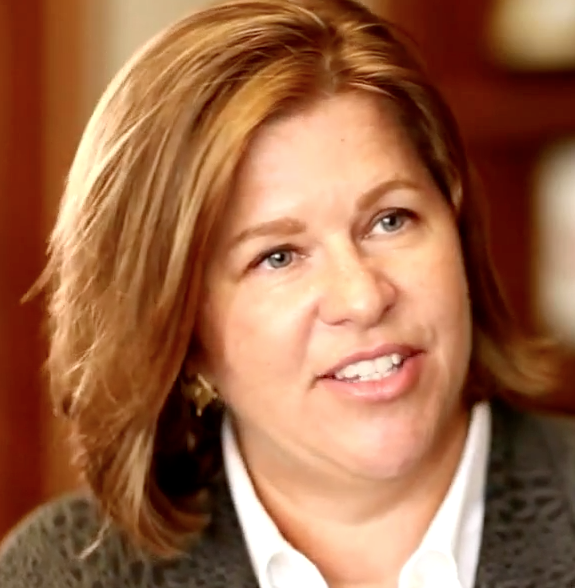
Renee Hobbs
Professor of Communication Studies at the Harrington School of Communication and Media at the University of Rhode Island and founder of the Media Education Lab
Biography
Renee Hobbs is Professor of Communication Studies at the Harrington School of Communication and Media at the University of Rhode Island and founder and director of the Media Education Lab, whose mission is to improve the quality of media literacy education through research and community service. She is a founding co-editor of the Journal of Media Literacy Education, an open-access peer reviewed journal that advances scholarship in the field.
Through community and global service and as a researcher, teacher, advocate and media professional, Hobbs has worked to advance the quality of digital and media literacy education in the United States and around the world. She maintains an active research agenda that examines the intersections of the fields of media studies and education, has authored five books, more than 150 articles in scholarly and professional journals. Her current research examines approaches to teacher education in digital and media literacy education, with a focus on measuring how teacher motivations shape their practice of integrating digital tools and media literacy concepts into the curriculum. She has also developed and validated measures of media literacy competencies for adolescents and she has evaluated the impact of media literacy programs implemented in American schools. Renee Hobbs developed award-winning multimedia curriculum for elementary and secondary educators, helping them integrate media literacy into the curriculum. Among other things has developed Mind Over Media: Analyzing Contemporary Propaganda, a user-generated content website for teaching and learning about propaganda.
Renee Hobbs received an Ed.D in Human Development from the Harvard Graduate School of Education, an M.A. in Communication from the University of Michigan, and a B.A. with a double major in English Literature and Film/Video Studies from the University of Michigan.
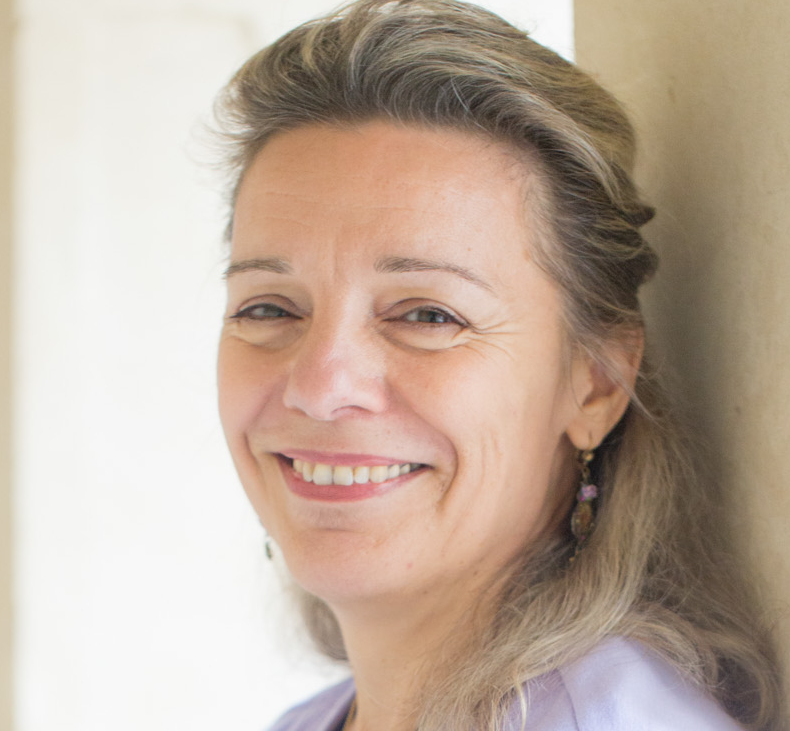
Divina Frau-Meigs
Professor of Media Sociology at the Université Sorbonne Nouvelle, UNESCO Chair for “Savoir-Devenir in sustainable digital development: mastering information cultures
Biography
Divina Frau-Meigs holds degrees from the Sorbonne University, Stanford University and the Annenberg School for Communications (University of Pennsylvania). She is a specialist of Cultural Diversity, Internet Governance and Media and Information Literacy (MIL) as well as a researcher in the media uses and practices of young people. She holds the UNESCO chair “Savoir-devenir in sustainable digital development: mastering information cultures” (2013–). She was granted the “Global MIL Award” by UNESCO and Alliance of Civilisations for her MOOC DIY MIL (2016). She has published many research articles and more than 30 books among which Faut-il avoir peur des “fake news”? (2019) and European Public Policies on Media and Information Literacies in Comparative Perspective (ed., Routledge, 2017). She is an expert with UNESCO (on MIL, social media, youth and radicalisation), with Council of Europe (on MIL and Digital Citizenship Education), with the European Union (on MIL for all and online disinformation).
Divina Frau-Meigs directed CLEMI (the French Center for MIL) during 2013-2015 and prepared the French school response after “Je suis Charlie”. She is the co-chair of the European Chapter of GAPMIL, the Global Alliance for Partnerships in Media and Information Literacy. She represents civil society interests (academia and research) in the Internet Governance Forum (IGF) and in other global arenas (ICANN, WSIS…). She is the president of Savoir*Devenir, an NGO dedicated to XXIst century literacies and digital transition.
Websites: www.divina-frau-meigs.fr ; www.savoirdevenir.net ; www.savoirdevenir.net/chair
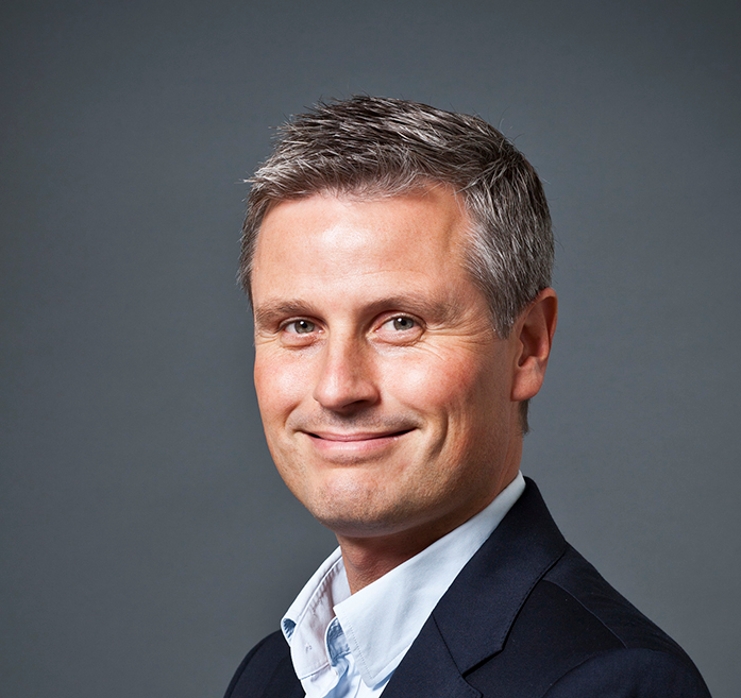
Claes de Vreese
Professor and chair of Political Communication at The Amsterdam School of Communication Research, University of Amsterdam, and founding Director of the Center for Politics and Communication
Biography
Claes H. de Vreese is Professor and Chair of Political Communication and director of the Program Group Political Communication & Journalism at The Amsterdam School of Communication Research ASCoR , University of Amsterdam (UvA). He (co-)directs the UvA Research Priority Areas Communication and Personalised Communication, and Human(e) AI. He is the founding Director of the Center for Politics and Communication and the President Elect of the International Communication Association ICA. Finally, he is Affiliated Professor of Political Science and Journalism at the University of Southern Denmark. De Vreese is elected member of the Royal Dutch Academy of Sciences (KNAW), and the Chair of the KNAW Social Science Council (SWR).
His research interests include comparative journalism research, the effects of news, public opinion and European integration, effects of information and campaigning on elections, referendums and direct democracy. He currently holds an ERC grant titled ‘EUROPINIONS’ (2015-2020). He has received awards for research from the International Communication Association, the Danish Science Foundation, and the Norwegian Holberg Foundation. He is recipient of the Swanson Career Achievement Award (ICA, 2018) and the NeFCA Career Award (2019).
He has published more then 150 articles in international peer-reviewed journals, including Communication Research, Journal of Politics, Journalism Studies, Political Communication, Journal of Communication, Public Opinion Quarterly, International Journal of Public Opinion Research, Scandinavian Political Studies, European Journal of Communication, West European Politics, European Union Politics, Journalism & Mass Communication Quarterly, Mass Communication & Society, and European Journal of Political Research.
He is the Editor in Chief of Political Communication (2014 – ) and served as Editor and Editor-in-Chief of the International Journal of Public Opinion Research IJPOR. He serves on the Editorial Board of several ISI ranked journals and reviews manuscripts for 40+ journals in journalism, communication science, political science, and European studies.
He chairs the European Committee of the Social Science One initiative.
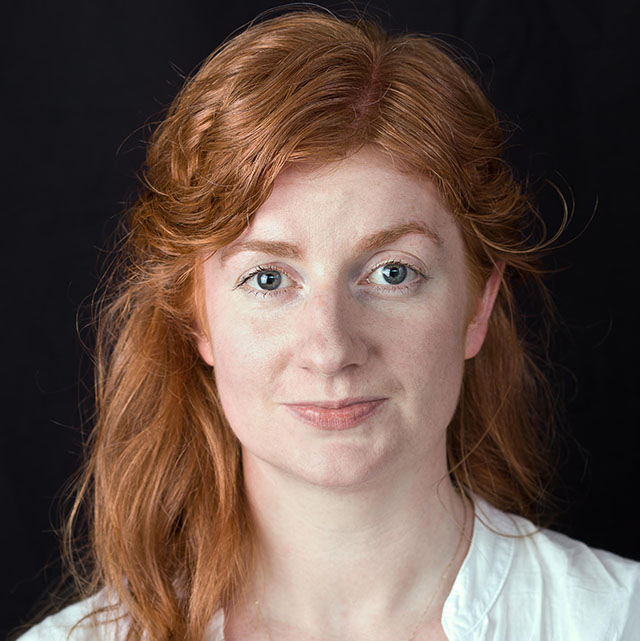
Martina Chapman
Independent consultant in Media Literacy and Digital engagement
Biography
Martina Chapman is an indpendent consultant specialising in media literacy policy and strategy development, research management, project implementation and stakeholder management, she provides expert advice and support to a range of high-profile organisations.
Martina is proud to be the national coordinator of the Media Literacy Ireland network and the 2019 Be Media Smart campaign on behalf of the Broadcasting Authority of Ireland.
She has worked across Europe with organisations such as the Council of Europe, the European Commission, the European Audiovisual Observatory, the European Platform of Regulatory Authorities, the European Broadcasting Union and the Organisation for Security and Cooperation in Europe. She has also worked with a number of regulatory bodies including the Broadcasting Authority of Ireland, Ofcom in the UK and the Georgian National Communications Commission, as well as number of Public Service Media, media institutes and private commercial organisations. She is also pleased to serve as an Associate with the Wagner-Hatfield consultancy firm.
She has authored and co-authored numerous national and international research reports and policy documents relating to MIL topics including the background paper Media Literacy for all. Supporting marginalised groups through community media for the 2020 Council of Europe Ministerial Conference and the Mapping of Media Literacy Practices and Action in EU 28.
As a member of the Council of Europe Committee of Experts on quality journalism in the digital age (MSI-JOQ) she was one of the two researchers and rapporteurs for the report Supporting quality journalism through media and information literacy.
Prior to setting up as a MIL consultant, she was the BBC’s Editor for Media Literacy and she previously held the staff position of Media Literacy Policy Executive for Ofcom.
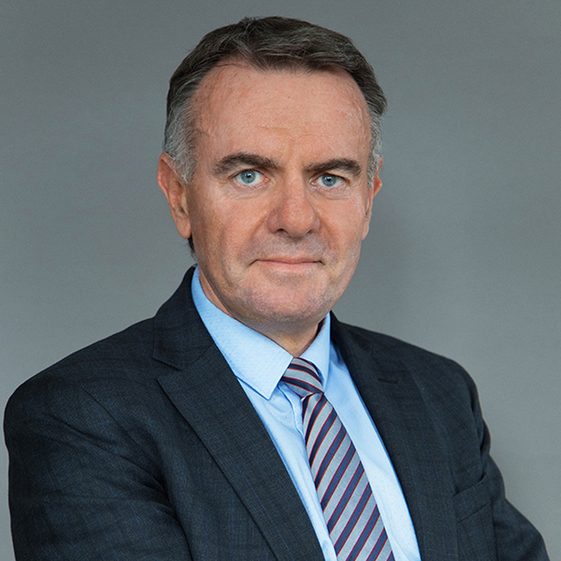
Noel Curran
Director General of the European Broadcasting Union (EBU)
Biography
Noel Curran took up the role of Director General of the EBU in September 2017.
He is the former DG, Managing Director of Television and Editor of Current Affairs of RTÉ, Ireland’s national television and radio broadcaster. As Director General he successfully led RTÉ during one of of the most financially challenging and competitive periods in media history.
A strong and long-time advocate of public service media, Curran is also an award winning investigative journalist and Producer. As an Editor and Producer, Noel’s programming won numerous awards for journalism in Ireland and internationally.
He was also Executive Producer on a range of live television events, including the Eurovision Song Contest in 1997, general election coverage, live entertainment series and factual programming.
Noel attended Trinity College, Dublin, where he studied European Broadcasting Policy and graduated from Dublin City University In Communication Studies, specialising in national and international broadcasting policy and writing a thesis on the role of Public Service Broadcasting.
He is currently Adjunct Professor of Journalism at Dublin City University.
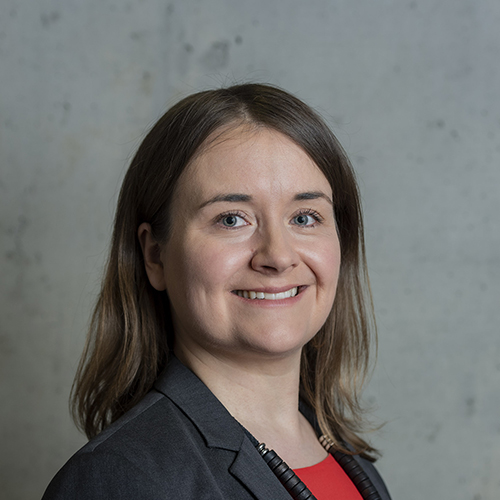
Saara Salomaa
Deputy Director and the Head of the Department for Media Education and Audiovisual Media in the Finnish National Audiovisual Institute (KAVI)
Biography
Saara Salomaa is working as a Deputy Director and the Head of the Department for Media Education and Audiovisual Media in the Finnish National Audiovisual Institute (KAVI). KAVI is a state authority subordinate to the Ministry of Education and Culture and it has legal obligations to promote media education and safer media environment for children. Salomaa’s work consists of two main fields: 1) supervising compliance with the Act on Audiovisual Programmes in order to protect minors and 2) leading the promotion of media education and media literacy in Finland. KAVI’s media education includes expert consulting, policy development, networking and strategic planning, research and producing educational resources. Saara Salomaa is leading the Finnish Safer Internet Centre (FISIC), a long-term project partly fund by the European Commission. Within FISIC, KAVI coordinates two annual campaigns: Finnish Media Literacy Week and Finnish Game Week. She is also in charge of the media literacy section of the national New Literacies -project lead by the Ministry. Saara Salomaa is one of the authors of the revised Finnish national media literacy policy. The policy was prepared by KAVI from the Ministry’s assignment and it was published by the Ministry in December 2019. Salomaa’s other publications and research interests cover media education widely; from media literacy policies to professionals’ media educational consciousness and children’s media usage.
SPEAKERS
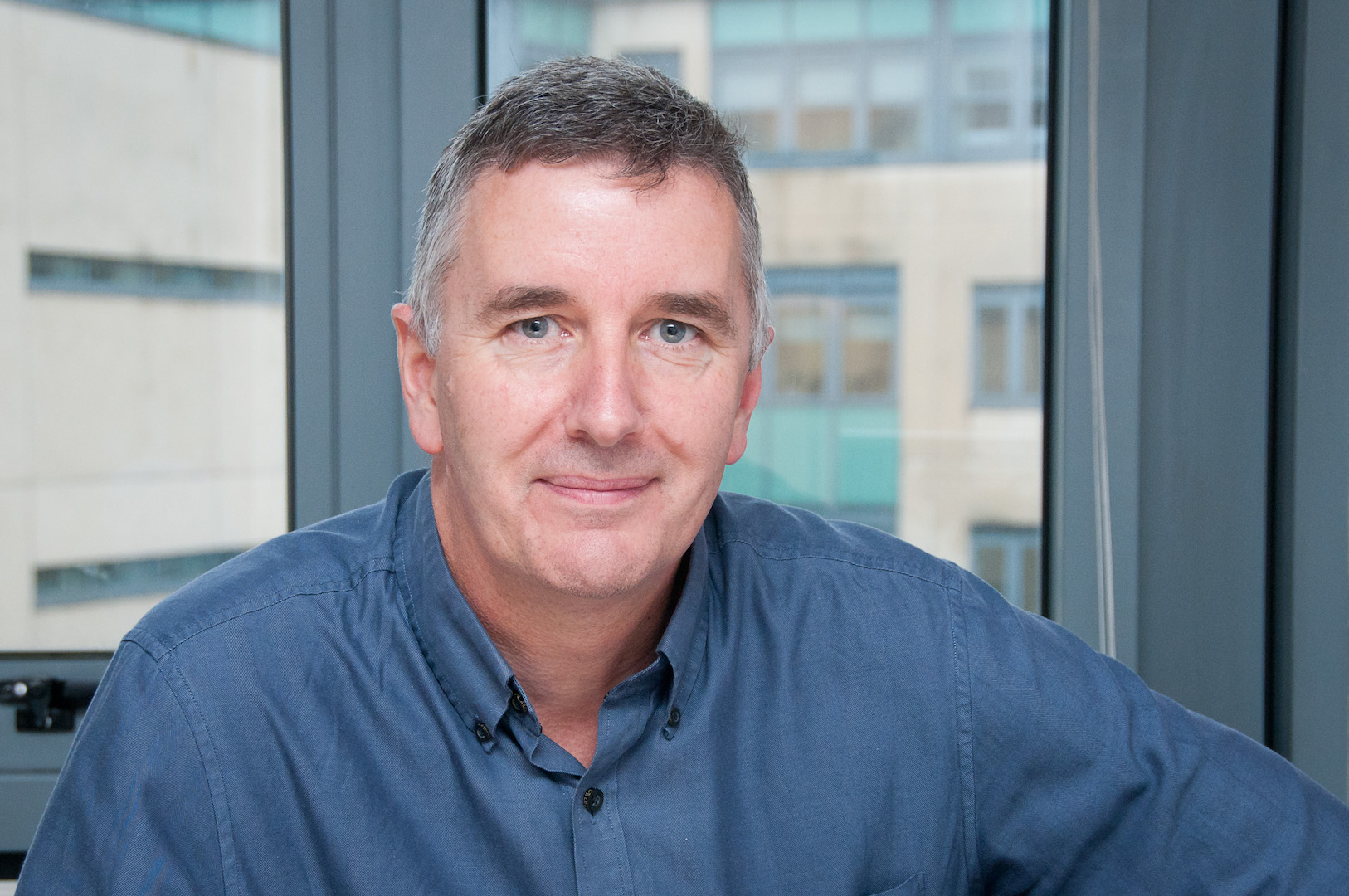
Brian O’Neill
Director of Research at Technological University Dublin
Biography
Brian O’Neill, Professor, is Director of Research at Technological University Dublin (TU Dublin) and a researcher of young people’s use of digital technologies, online safety and policy for the digital environment. He has undertaken research for the European Commission, UNICEF, the Council of Europe, the Ombudsman for Children’s Office and the Broadcasting Authority of Ireland on various topics associated with media literacy, child rights and information society technologies. As well as leading on policy development as a member of the EU Kids Online, he is a member of Ireland’s National Advisory Council for Online Safety and chaired the Irish government’s task force on Internet Content Governance. He chairs the Steering Group for Media Literacy Ireland, a multi-stakeholder initiative of the Broadcasting Authority of Ireland. His recent publications include articles for New Media and Society, and the Journal of Adolescent Research and Societies. He co-edited Towards a Better Internet for Children? Policy Pillars, Players and Paradoxes (Nordicom, 2014).
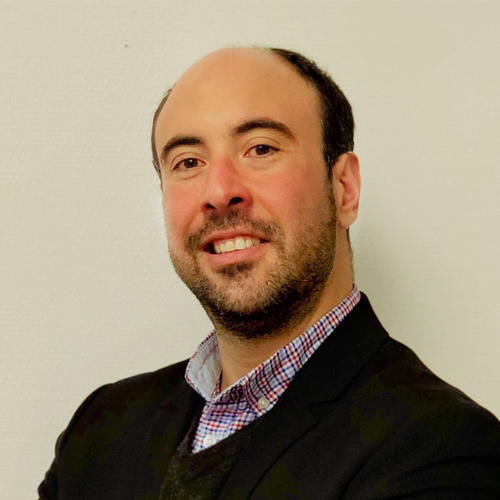
Julio Talavera Milla
Film and audiovisual analyst, European Audiovisual Observatory (EAO)
Biography
Julio Talavera Milla joined the Observatory’s Department for Legal Information in 2018, after working for the Department for Market Information from 2013. After obtaining a degree in Information Sciences from Universidad Complutense, Madrid and a specialization course on European Union studies from the Spanish National School of Diplomacy, he worked in the audiovisual sector in Germany.
Following a short experience at the MEDIA Programme of the European Commission in Brussels and the German international broadcaster Deutsche Welle in Berlin, he worked as a journalist and correspondent for the on-line magazine Cineuropa. In 2008 he attended L´Atelier, a postgraduate programme on European film production and distribution at the Filmakademie Baden-Württenberg, La Fémis and the UK National Film and Television School. Between 2010 and 2012 he served as cultural attaché at the Embassy of Spain to New Zealand. Prior to joining the Observatory he was Project Coordinator for Spain and the Benelux at Europa Cinemas in Paris.
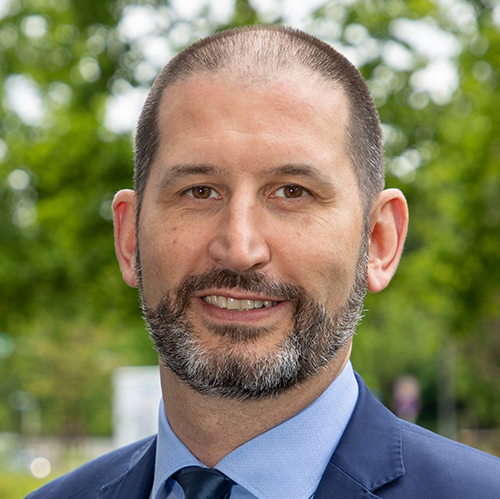
Mark D. Cole
Professor of Media and Telecommunication Law at the University of Luxembourg and Director for Academic Affairs at the Institute of European Media Law (EMR)
Biography
Mark D. Cole is professor of Media and Telecommunication Law at the University of Luxembourg since 2007 and Director for Academic Affairs at the Institute of European Media Law (EMR) in Saarbrücken since 2014. At the University of Luxembourg he is also Faculty Member of the Interdisciplinary Centre for Security, Reliability and Trust and Study Programme Director for the Master in Space, Communication and Media Law at the Department of Law.
He is member of the Advisory Committee of the Luxembourg Independent Media Authority (ALIA), one of the first appointed arbitrators at the German Media Arbitral Tribunal (DMS), Co-Director of the Institute of Legal Informatics at the Universität des Saarlandes and takes seat in the Advisory Council of the European Audiovisual Observatory of the Council of Europe. He was appointed to the Council’s Committee of Experts on Media Environment and Reform (MSI-REF) for 2020-2021.
He specialises in European and Comparative Media Law, covering the whole range of the regulatory framework for both traditional mass media as well as the law of the new information technologies which includes data protection and intellectual property law (www.medialaw.lu). He studied law and political science and holds a doctorate from the Johannes Gutenberg Universität Mainz as well as both German State Examinations in Law. He gained practical experience in media law at the DG Competition of the European Commission, a law office specialising in Intellectual Property Law and the legal department of a television broadcaster.
Mark D. Cole is co-editor of the publications “Rundfunkstaatsvertrag/ Jugendmedienschutzstaatsvertrag – Heidelberger Kommentar”, “Europäisches und Internationales Medienrecht” as well at the forthcoming commentaries “The EU Audiovisual Media Services Directive – Comparative Commentary on the AVMSD and National Implementation” and the “General Data Protection Regulation (GDPR)”; he is co-founder and associate editor of European Data Protection Law Review and UFITA (Archiv für Medienrecht und Medienwissenschaft), co-editor of Revue du Droit des Technologies de l’Information and International Journal of Law and Information Technology (IJLIT) as well as a number of book series.
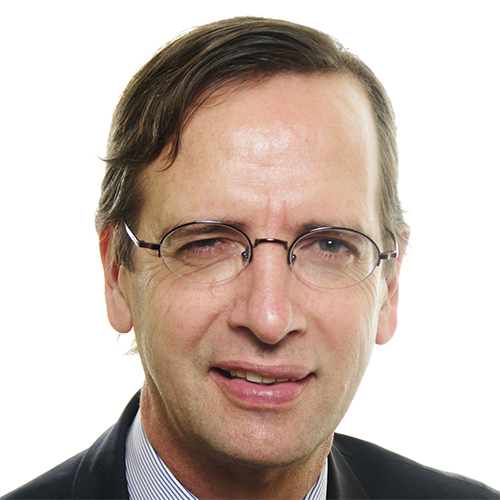
Guillaume de Posch
President of The Association of Commercial Television (ACT)
Biography
Guillaume de Posch, born in 1958, started his career at the international energy and services company Tractebel (1985 to 1990) and then joined the global management consulting firm McKinsey & Company (1990 to 1993).
Guillaume de Posch began his career in the media industry at the Luxembourg-based Compagnie Luxembourgeoise de Télédiffusion (CLT), as assistant to the Managing Director (1993 to 1994) and then became Head of CLT’s TV operations in French-speaking countries (1995 to 1997). From 1997 to 2003, he was Deputy General Manager and Programming Director of the French pay-TV company TPS, before joining the publicly listed ProSiebenSat1 Media AG in August 2003, first as Chief Operating Officer and then as Chairman of the Executive Board and CEO (2004 to 2008).
Guillaume de Posch was appointed Chief Operating Officer and new member of the RTL Group Executive Committee on 1 January 2012. Few months later, in April 2012, Guillaume de Posch was appointed Co-CEO of RTL Group. Under his leadership, RTL Group was transformed into the most digital European broadcasting company via strategic investments in the field of multi-platform networks and ad-tech. He also re-invigorated FremantleMedia’s creative drive.
In January 2018, at his own request, Guillaume de Posch stepped down as Co-CEO of RTL Group and since then he serves as a non-executive member of RTL Group’s Board of Directors.
Since May 2017 President of the Association of Commercial Television in Europe (ACT).
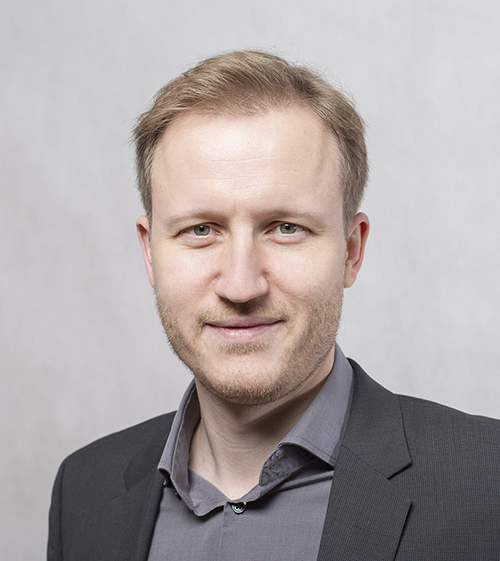
Ľuboš Kukliš
Board member, European Regulators Group for Audiovisual Media Services (ERGA)
Biography
Ľuboš Kukliš studied at Law Faculty of Comenius University in Bratislava, where he also obtained PhD in Administrative law. Since 2006 he is a chief executive at the Council for Broadcasting and Retransmission of Slovakia.
He is the Council’s representative in European Regulators Group for Audiovisual Media Services (ERGA), of which in 2018/2019 he served as chair.
Currently, he is responsible for ERGA’s external relations as one of its board members.
In 2016-2017 he chaired ERGA Subgroup on Protection of Minors that examined systems for the protection of children in the EU media environment. In 2018 he lead ERGA’s work on media plurality, and in 2020 he is leading ERGA Subgroup on Disinformation.
He frequently speaks at public events all over Europe and cooperates with international organisations on possible solutions on topics such as the spread of disinformation, protection of minors in the online space or the regulation of the new media. In the field of media and administrative law, he is also active in writing, including books Electronic Media Regulation (Wolters Kluwer, 2015) and Slovak Broadcasting Act – A Commentary (Wolters Kluwer, 2016). Most recently, he has been writing about the changes in media regulatory environment, including a chapter on the new video-sharing platforms regulation in the forthcoming Research Handbook on EU Media Law and Policy (Elgar Publishing, 2020).
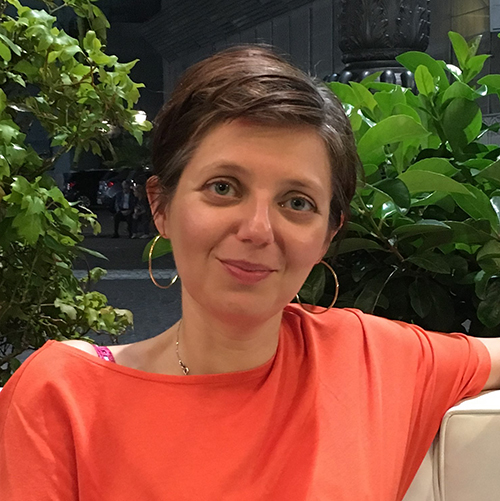
Maria Donde
Vice-Chairperson, European Platform of Regulatory Authorities (EPRA)
Biography
Maria Donde works for the UK Office of Communications (Ofcom) as the Head of its International Content Policy, covering media, content and broadcasting issues. She leads on Ofcom’s engagement with other European media regulators, most particularly through EPRA (where is currently a Vice-Chair) as well as international bodies, and represents Ofcom on the full range of media policy questions. She oversaw Ofcom’s input into the recently concluded negotiations on the AVMS Directive and manages its relationship with the European Commission on matters relating to the Directive.
Her regulatory background is in advertising, having spent four years at the Advertising Standards Authority before joining Ofcom’s Broadcasting Standards department. Prior to that, she worked in media analysis, and before that as a radio producer for the BBC World Service. She has a Modern Languages degree from Cambridge University and a Masters degree in Literary Translation.
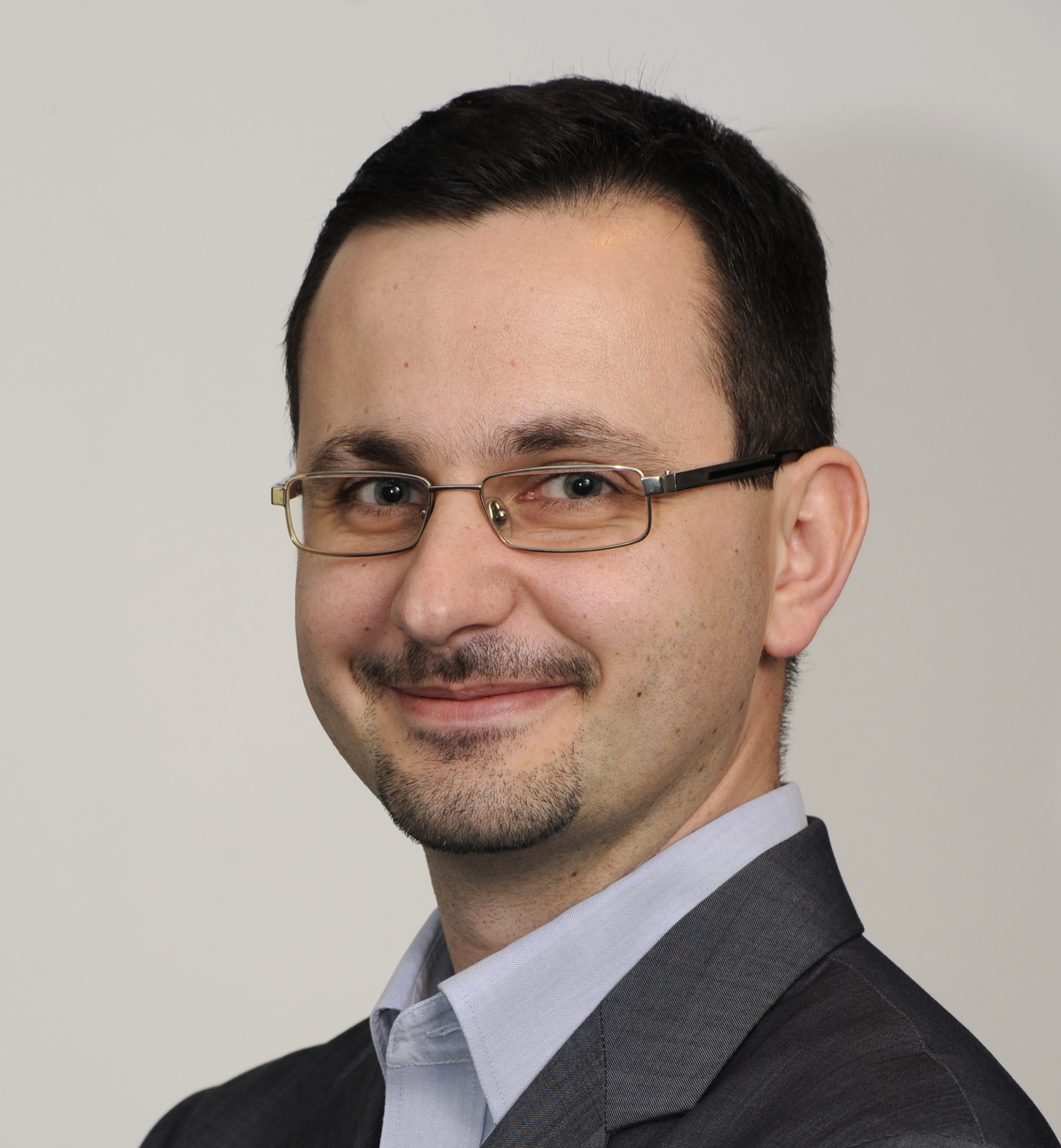
Igor Kanižaj
Associate Professor at the University of Zagreb, Faculty of Political Science, Department of Journalism and Media Production
Biography
Igor Kanižaj, Ph.D. is Associate Professor at the University of Zagreb, Faculty of Political Science, Department of Journalism and Media Production. He is also Vice president of the Association for Communication and Media Culture (DKMK). Together with his associates he is coordinating the project Djeca medija, the biggest national media education project in Croatia with more than 1000 workshops held for 25.000 participants in Croatia from 2011. This project was awarded with Evens Foundation Special Jury Prize for media education in 2017. Igor is the co-author of the first public opinion research on Media Literacy in Croatia and co-author of Paris Declaration on Media and Information Literacy (UNESCO). He worked also as journalist and expert for public awareness campaigns. He is member of the Council for Children of the Republic of Croatia. From 2014-2016 he was a vice dean for science and international cooperation at the Faculty of Political Science, University of Zagreb. Since 2010 he was member of editorial board of the interdisciplinary scientific journal Medijske studije/Media Studies, and in 2019 editor in chief. From 2016-2019 he was national coordinator of EU Kids Online. He also participated in other international projects: YNEX – European Youth News Exchange Programme, ERASMUS+ project; JETIC – Journalists Education and Training in Croatia (JETiC); COST ELN – EUROPEAN LITERACY NETWORK; COST “Transforming Audiences/Transforming Societies”; ANR TRANSLIT Comparative Analysis of Media and Information Education Policies in Europe and MIND OVER MEDIA: Analysing Contemporary propaganda (DG CONNECT, Media Literacy for All, LC-00644630). In 2020 he is visiting Scholar at Media Education Lab 2019-2020, Harrington School of Communication and Media/ University of Rhode Island, USA.
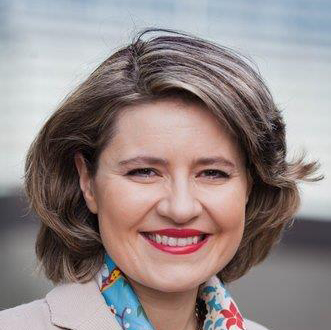
Anna Herold
Head of Unit Audiovisual and Media Services Policy, DG Connect, European Commission
Biography
Anna Herold is currently Head of the Audiovisual and Media Policy Unit at the European Commission. She was previously Member of Cabinet of Günther H. Oettinger, European Commissioner responsible for Digital Economy and Society, and subsequently, Budget and HR. Prior to that, she was Assistant to Deputy Director-General of DG Communications Networks, Content and Technology of the European Commission, Roberto Viola. Anna Herold has worked for the European Commission since 2003, dealing with media, audiovisual and telecoms policy as well as competition law. She holds a PhD in Law from the European University Institute in Florence and has written on media law and policy, international trade and competition law.
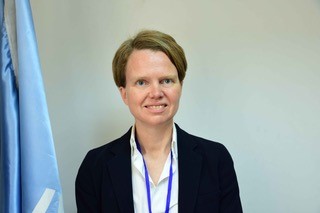
Louise Haxthausen
UNESCO Representative to the European Union and Director of the UNESCO Liaison Office in Brussels
Biography
Louise Haxthausen was appointed as the UNESCO Representative to the European Union and Director of the UNESCO Liaison Office in Brussels in February 2019.
She joined UNESCO in 1993, as Associate Expert in the Human Rights Division of the Sector for Social and Human Sciences, at UNESCO HQ (Paris). She has worked on conflict and crisis response at country-level in Afghanistan and in Palestine; and most recently as Director of the UNESCO Office for Iraq (Baghdad) . At UNESCO Headquarters, she has acted as Focal Point for the Middle East in the Office of the Director-General; as Senior Coordinator, Crisis Response in the Arab World, Bureau of Field Coordination ;and as Senior Coordinator, Crisis and Transition Response, at Office of the UNESCO Director-General.
She has an academic background in political science (bachelor degree) and international public law (Masters degree).
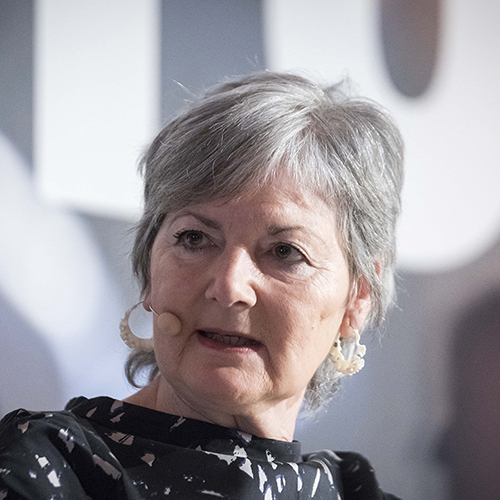
Sally Reynolds
Media & Learning Association
Biography
Sally Reynolds is an Irish national with a background in remedial linguistics, Sally first worked in radio and television in Ireland as a presenter and producer for the national broadcaster, RTE specialising in educational programming. From 1990 onwards, she worked in technology enhanced learning networks in Ireland, Germany, The Netherlands and Belgium. She is a Director of ATiT which she co-founded in 1999 where she leads on dissemination and event management, media literacy, and media education from primary through to continuing education and has considerable experience in all levels of European project management from concept through to validation. Sally leads in the organisation of the annual Media & Learning Conference and is actively engaged in the related MEDEA Awards and Media and Learning Association. Through her work with ATiT and the Media & Learning Association, Sally has been involved for many years in media education and media literacy initiatives of one sort or another. Sally is an experienced media producer, event manager and European dissemination strategist.
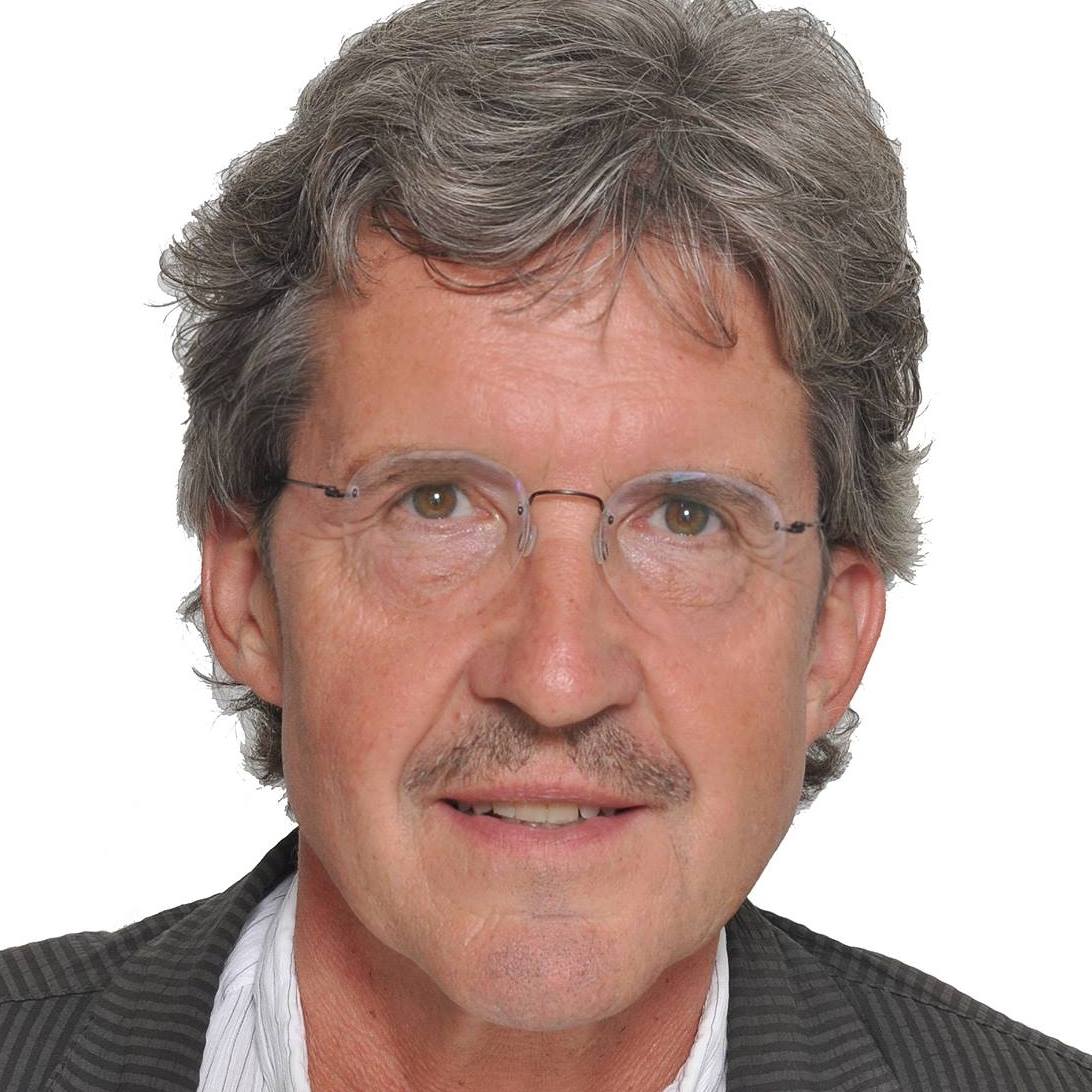
Chris Marcich
CEO of the Croatian Audiovisual Center – HAVC
Biography
Chris Marcich was appointed CEO of the Croatian Audiovisual Center (HAVC) on 1 May 2019.
He has been President of the Board of AGICOA, the association of audiovisual producers and their collective rights management groups since 2013.
Upon deciding to divide his time between Brussels and Croatia for personal reasons, Chris was appointed President for International at the Motion Picture Association (MPA) in January 2015 to assist with a transition within the MPA. He was responsible for coordination of the MPA’s international offices (EMEA, Asia-Pacific, Canada, Brazil & Mexico).
Chris Marcich joined the MPA in 1995. From 1995 through 2014 he served as President in charge of MPA’s regional office for Europe, the Middle East, and Africa. The office’s principal areas of activity include work on legislative and regulatory issues related to the media sector at the European and national levels.
Prior to joining the MPA Chris spent sixteen years working in the U.S. Government on international trade issues as a negotiator and shaping U.S. trade policy. When he left the Government in 1995, he was the Assistant U.S. Trade Representative for Europe, responsible for trade relations with the region. Prior to that, Chris was appointed to the newly created position of Assistant US Trade Representative for Trade and Environment, pioneering efforts to integrate health and environmental principles with those of international commerce.
Chris Marcich holds Croatian and U.S. citizenships, holds a Master’s degree from Georgetown University, and speaks English, Croatian and French and has working knowledge of Italian and Spanish.
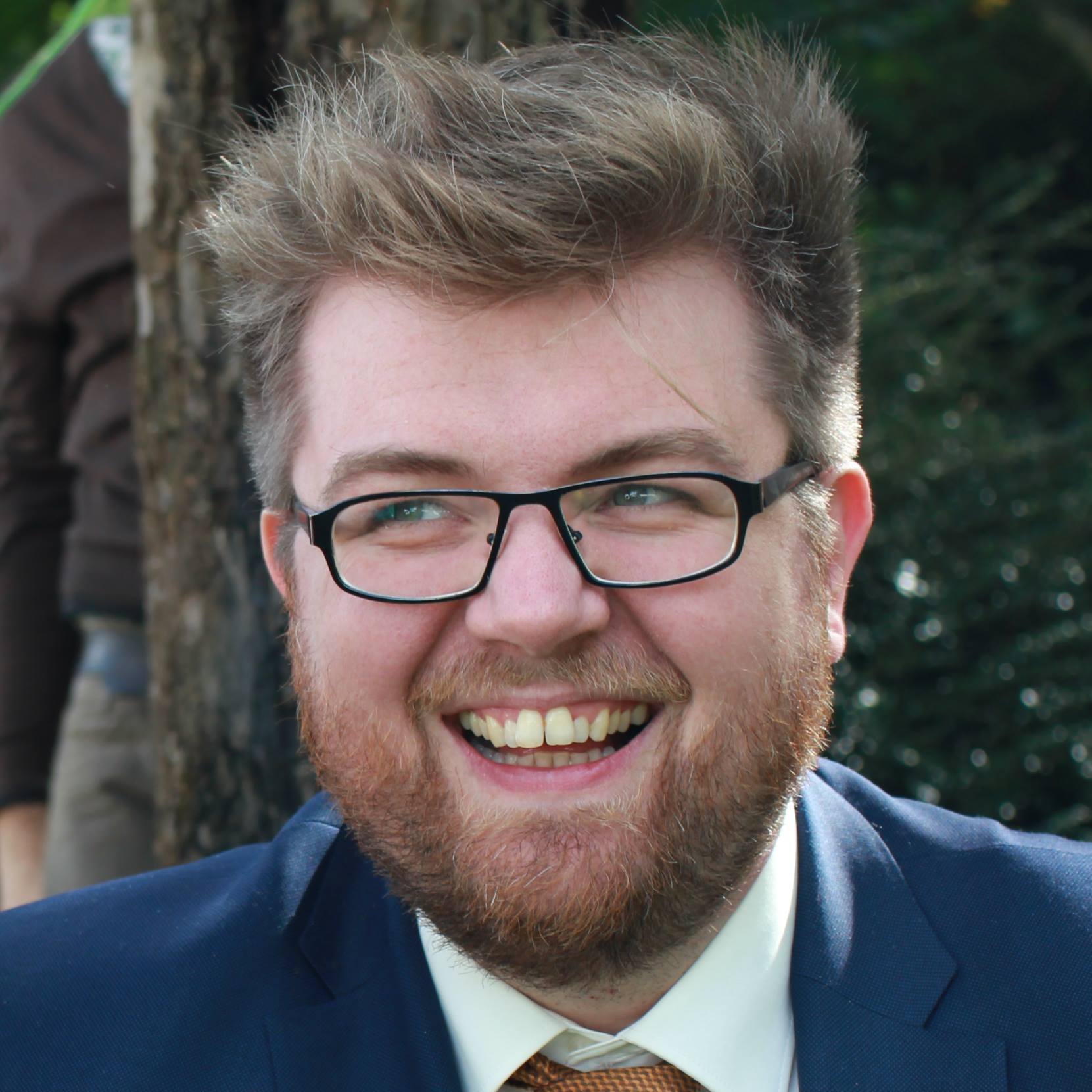
Andy Demeulenaere
Coordinator of Mediawijs, the Flemish Knowledge Centre for Digital and Media Literacy
Biography
Andy Demeulenaere is the coordinator of Mediawijs, the Flemish Knowledge Centre for Digital and Media Literacy. Mediawijs was tasked by the Flemish Minister of Media to coordinate and stimulate digital en media literacy in the whole region of Flanders.
Andy has coordinated the vision and educational policy of the largest youth movement in Belgium and the main Flemish organisation on digital youth work and presided over the board of the Flemish umbrella organisation for youth work. Now he heads Mediawijs and acts as an expert to the Flemish government in the Strategic Advice Council for Culture and Media, the network group on disinformation, the working group on Digital Citizenship at European Schoolnet etc. As a long time professional and volunteer youth worker empowering people is at the core of his work, as an experienced organisation manager achieving societal impact with reasonable resources is an essential focus, as a historian critical thinking and connecting the current trend to historical evolutions is in his nature.
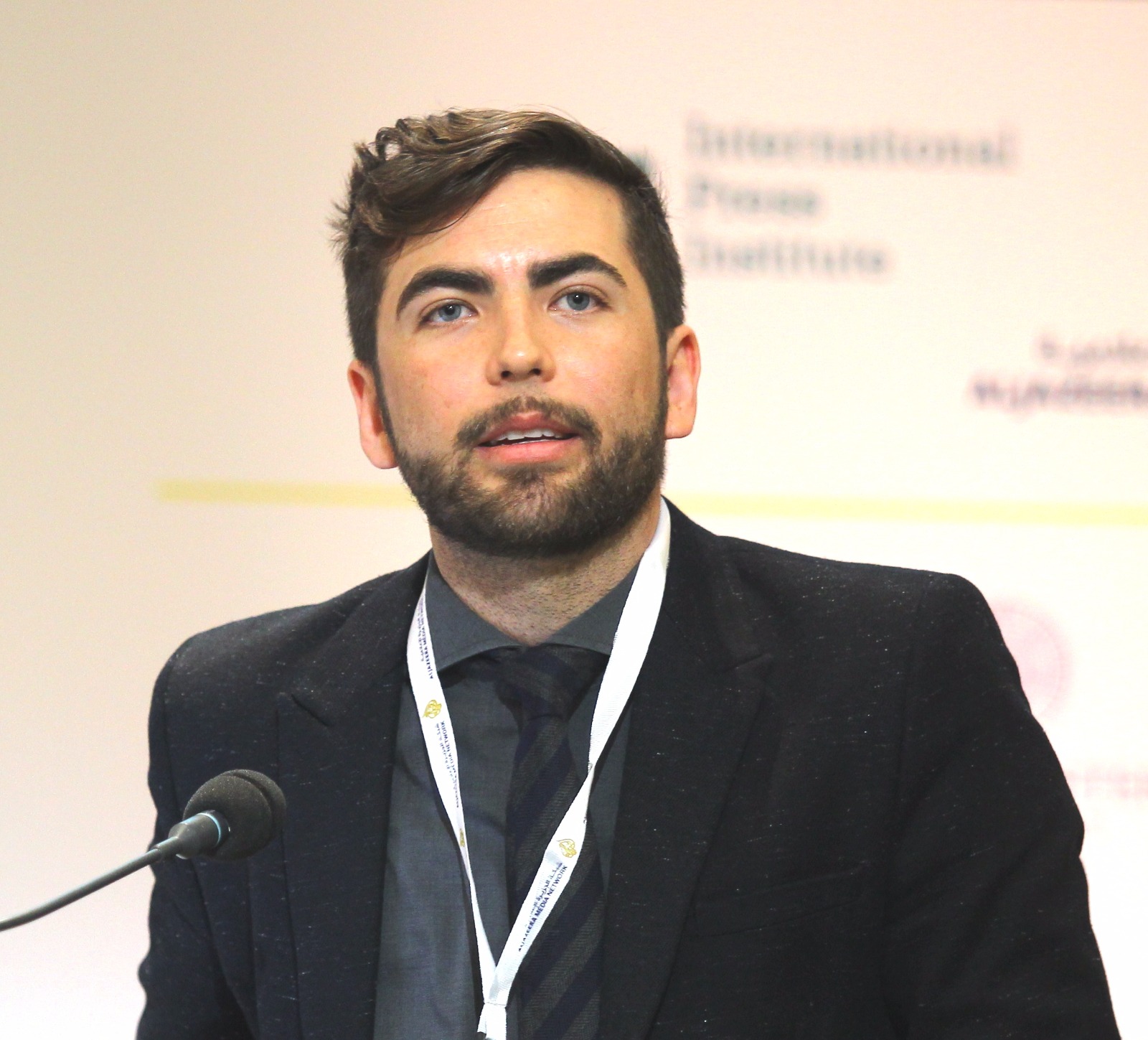
Scott Griffen
Deputy director at the International Press Institute (IPI)
Biography
Scott Griffen is deputy director at the International Press Institute (IPI), a global network of editors, publishers and journalists defending press freedom since 1950. He is the author of numerous IPI reports on diverse topics related to press freedom and independent journalism and has led or participated in dozens of IPI press freedom missions around the world, mostly recently in Mexico, Hungary and Tanzania. Griffen comments regularly on press freedon issues in international media. He holds degrees from Yale University and King’s College London.
He currently oversees IPI’s leading role in the IJ4EU fund, which supports cross-border investigative journalism in the EU. In 2020, the IJ4EU fund will provide 1 million euros to cross-border projects, as well as additional direct support to investigative journalists in the form of training, network and legal aid.
